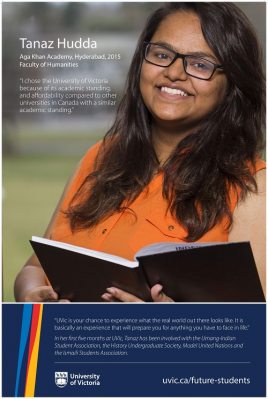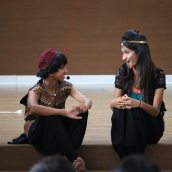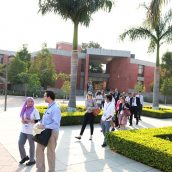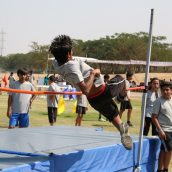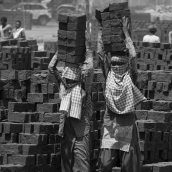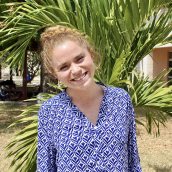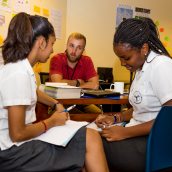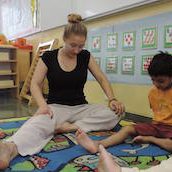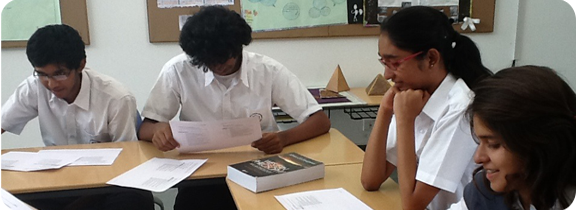
About the Academy
The Aga Khan Academy Dhaka is the fourth in the network of the Aga Khan Academies established by His Highness the Aga Khan.
The Academy features state-of-the-art facilities, a multicultural student body and an experienced team of educators and staff. We provide students with education of the highest standard in order to prepare them for lives characterised by leadership and service.
Admission to the Academy is competitive and based on student merit.
Mission statement
The following is the mission statement of the Aga Khan Academy Dhaka:
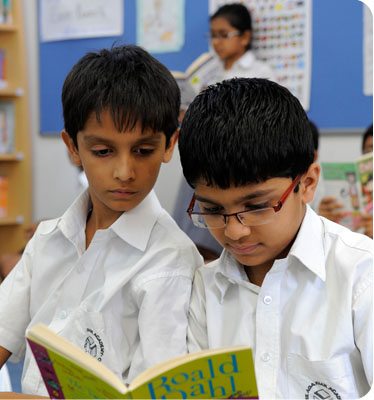 "The Academy will identify and nurture exceptional young people from any background with the potential to become effective, ethical leaders. It will be a joyful community of lifelong, fearless learners who are culturally-rooted and internationally-minded. Academy graduates will be reflective, compassionate, adventurous and creative citizens empowered as stewards to make a positive contribution in a changing world."
"The Academy will identify and nurture exceptional young people from any background with the potential to become effective, ethical leaders. It will be a joyful community of lifelong, fearless learners who are culturally-rooted and internationally-minded. Academy graduates will be reflective, compassionate, adventurous and creative citizens empowered as stewards to make a positive contribution in a changing world."
A culture of excellence
As with all the Aga Khan Academies, we are committed to excellence in all aspects of education. This commitment includes the academic curriculum as well as the campus where students live and learn.
Our campus is architect designed and purpose-built. It features state-of-the-art classrooms and resource areas, and extensive sports facilities. These outstanding facilities provide an inspiring environment for both students and staff.
At the Academy, we strive to create a balance between academic demands, sports, cultural activities, and community life. We challenge our students to be intellectually inquisitive and socially conscious. We also encourage them to respect and appreciate other people’s cultures, social structures, values and beliefs.
A rigorous academic programme
The network of Aga Khan Academies has developed its academic programme in line with the widely-recognised International Baccalaureate.
Following in the footsteps of its sister schools in Mombasa, Hyderabad and Maputo, the Aga Khan Academy Dhaka is pursuing authorisation as an IB World School.
The programme is designed to challenge students of all backgrounds.
Our aims for our students include:
- promoting academic excellence
- enhancing analytical and study skills
- building leadership skills
- fostering an ethical outlook and sense of civic responsibility
- developing an understanding of local context and global issues
- encouraging creativity.
Experienced local and international teachers lead our programmes. Faculty members are up-to-date with the best educational practices. They are committed both to their students’ learning and to their own continuing professional development.
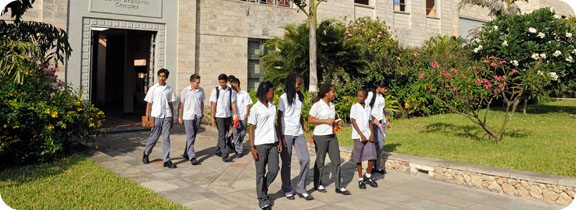
Introduction to the Aga Khan Academies
In 2000, His Highness the Aga Khan initiated the establishment of the Aga Khan Academies, an integrated network of schools to be located in countries across Africa, South and Central Asia, and the Middle East.
The aim of the Academies is to develop future leaders with the skills and knowledge to support positive development in their societies. The Academies achieve this by recruiting exceptional young people from all backgrounds and providing them with the highest international standard of education.
Admission is based upon merit, with financial aid available to ensure access for accepted students regardless of financial circumstances.
Global network
The first Aga Khan Academy opened in Mombasa, Kenya in 2003, the second in Hyderabad, India in 2011, the third in Maputo, Mozambique in 2013 and the fourth in Dhaka, Bangladesh in 2022.
Rigorous academic programme
The academic programme offered by the Academies has been developed according to the principles of the widely-recognised International Baccalaureate (IB). The IB provides a challenging academic environment for students and allows their achievement to be measured against international standards.
In addition to providing a rigorous academic and leadership experience, the Academies help students develop an ethical and public-minded outlook through community service opportunities and education on ethics and pluralism.
“An education must equip students with the tools that enable them to adapt and thrive in a world characterised by change.”They also recognise that to become effective leaders, students must be both globally minded and locally rooted. Global as well as local perpectives are reflected in the curriculum, and students study in both English and the local language.
Purpose-built residential campuses
Each Aga Khan Academy campus is architect designed and purpose built. They feature state-of-the-art classrooms and resource areas, and extensive sports facilities.
The residences provide secure and well-supervised accommodation for local and international students as well as those visiting from another Academy. As the network develops further, both students and teachers will participate in visits and exchanges between Academies to broaden their experience and practical understanding of pluralism.
Professional development
Promoting excellence in teaching, both on campus and more broadly, is a major goal of the Academies. Each Academy is established as a Professional Development Centre (PDC). The PDC aims at strengthening the profession of teaching in the region by providing substantial professional learning opportunities and modelling highly effective educational practice.
Tanaz Hudda (Class of 2016): Poster girl for University of Victoria
Another lesson that is helping her through university came from one of her Academy teachers. "My teachers were my support system throughout my time at the Academy. One of my favourite teachers who pushed me harder and harder whenever I would perform well or sometimes not so well was Dr. Karuna Arya. I think she instilled this idea in me that one can always do better, even if it appears that you are the best at it. I genuinely cannot forget that lesson as it has helped me so much in the past few months at university." Tanaz also relied on the Academy's staff for help with university choices. "Choosing the kind of university that would suit you the best is always difficult. I had many questions and I had no clue where I would rather go as all universities seemed appealing. For me, the two things that mattered most was affordability and coop opportunities in the field of humanities. I was able to narrow down the list with the help of our University Counsellor, Ms. Pragati, and that made a huge impact on my university choice."
Even though Tanaz has found that Canada can offer her the best career opportunities she believes that giving back to her country and settling down in India is more important. "That connection is what motivates me to study harder and then settle in India to contribute to the greater good of the place I come from. The Academy taught me to strive for excellence, work for the community and be involved in as many extra-curricular activities as possible, as well as never forget where you come from. Giving back to the society has been my goal ever since I joined the Academy and would definitely influence my plans for the future." While at the Academy Tanaz volunteered at a local residential school and helped organise different events for the children there. This and other service projects, such as her volunteering in Nairobi, has convinced Tanaz of the importance of education for India's future, especially in rural schools.
Not only is it important for students to have an education but she also stresses the importance of a 'proper' education. "I have visited many local schools which have neither resources nor adequate training to teach kids what they are supposed to learn. I feel that education is the only chance we have to transform how the nation thinks and that needs to be instilled in rural areas, because India lives in its villages. No education and most of all, improper education could be dangerous in creating false knowledge and sometimes continuing the social evils that exist in a society. Hence, I would focus on making the education system better."
Nabil Patel: photographer par excellence and published author
Videos
The videos below provide more information about the Academies and glimpses into student endeavours at the Aga Khan Academy Mombasa.
Pages
Videos
The videos below provide more information about the Aga Khan Academy Maputo and the Aga Khan Academies programme.
Pages
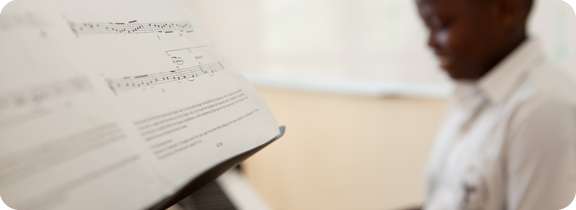
Co-curricular Programmes
Co-curricular programmes enable students to realise their potential in a variety of settings beyond the classroom. Students develop a sense of self-awareness and an understanding of school and community needs and opportunities. They also learn how to apply their gifts and skills to make a positive impact.
At the Academy, we believe in a balanced, rounded, comprehensive school experience. As this includes both academic and co-curricular experiences, we encourage our students to do their best both in and outside the classroom.
We will offer outstanding sports facilities that will include:
- swimming and diving pools
- cricket, soccer and hockey pitches
- basketball and volleyball areas
- tennis and squash courts
- dance studio
- gymnasium
- athletics tracks.
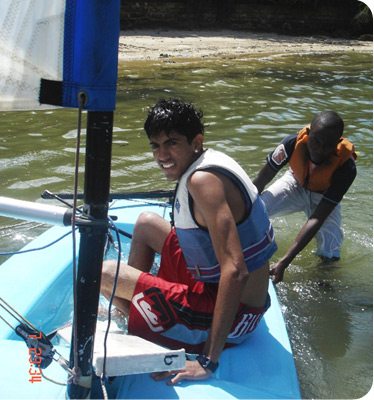 Children with special sporting gifts will be encouraged to develop their talents in every way. Children with special gifts in music, art or drama will similarly be encouraged through opportunities to practise and perform while at the Academy.
Children with special sporting gifts will be encouraged to develop their talents in every way. Children with special gifts in music, art or drama will similarly be encouraged through opportunities to practise and perform while at the Academy.
Our co-curricular programmes are clustered into three main streams, each with a different focus:
Creative Expression
Whether through visual or performing arts, this cluster engages students to think creatively and express their identities and thoughts aesthetically. Through theatre, art, music and drama, students learn to work together and infuse their projects with values and lessons from other parts of their schooling. Individual and collaborative creative projects emphasise growth and development through personal challenge, ultimately resulting in achievable personal goals.
Action
The student as a reflective practitioner is a basic tenet of the Action cluster. Through physical sport—both competitive and non-competitive—students are challenged in their physical growth, and learn values such as good sportsmanship, teamwork and ethical behaviour. We encourage them to extend themselves by trying different activities and working with teammates to pass on their knowledge. In line with developing the student as a whole, a healthy lifestyle complements and enhances academic achievement.
The Academies will be concerned with the whole of the human being—mind, body and spirit—and with the broad range of human aspiration—intellectual, moral, artistic, physical and spiritual. The fact that these are residential academies will contribute enormously to these broad objectives, encouraging students to identify more completely with the school, to help lead it and shape its environment.
The Academies will be concerned with the whole of the human being—mind, body and spirit—and with the broad range of human aspiration—intellectual, moral, artistic, physical and spiritual. The fact that these are residential academies will contribute enormously to these broad objectives, encouraging students to identify more completely with the school, to help lead it and shape its environment.
Citizenship
At the Academy, we encourage knowledge and understanding of humanity and civil society. Through their involvement in citizenship activities, students gain an understanding of the practical implications of their work and study. By collaborating with community groups on sustainable projects, they develop an appreciation for human rights and human dignity, and of how their actions impact the world around them.
To learn more about the Academy's programme, please visit the Academic Programme page.
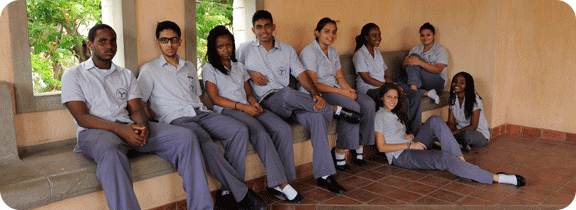
Quick Facts about the Academy
The Aga Khan Academy Mombasa (established 2003)
Location: Kizingo area of Mombasa Island
Campus size: 18 acres of land; campus design inspired by local Swahili architecture
Curriculum
The Aga Khan Academy Mombasa is an International Baccalaureate (IB) World School
IB programmes:
- Primary Years Programme: years 1–5
- Middle Years Programme: years 6–10
- Diploma Programme: years 11–12
Aga Khan Curricular Strands, implemented across the curriculum:
Ethics, Pluralism, Cultures (with an emphasis on Muslim civilisations), Governance and Civil Society, and Economics for Development
Staff and students
Faculty numbers: 7 senior management, 70 Senior School faculty, 27 Junior School faculty, 104 administrative staff
Number of students currently enrolled: 687 day and residential students in total: 181 day students in the Junior School; 506 day and residential students in the Senior School, with 270 in residence
Numbers of students and teachers at full capacity: 750 students and 90 teachers, with over 30% of students receiving some form of financial aid
First IB Diploma Programme graduating class: 2007
Residential students
Number of residential students: 270 currently, with full capacity of 300 students
Number of students per room: Between 1 and 4, with second year Diploma Programme students in single or double rooms
Residential facilities: Student lounge with large-screen television, study areas, laundry facilities, dining hall
Campus facilities
Sports facilities: 25-metre swimming pool, diving pool, full-sized sport field, Astroturf field, gym,
three regulation-sized basketball courts, cricket pitch, tennis courts, squash courts, badminton court, volleyball court, netball court and junior play area
Arts facilities: Rooms for fine arts, music, dance; individual music practice booths; music recording area; amphitheatre performance space
Academic areas: Junior School classrooms, Senior School classrooms, science and computer laboratories, multiple-award-winning library and resource centre, arts facilities, music and dance studios
Residential buildings: Six residential blocks: three male and three female; 4–6 dorm parent apartments in each block. Each block has a central atrium, lounge area, ocean view, patio and laundry facilities
Technology: The Aga Khan Academy Mombasa has been named a Microsoft Showcase School, the only school in East Africa to receive this designation
Professional Development Centre
The Aga Khan Academy Mombasa is home to a Professional Development Centre for the advancement of teachers. The primary objective of this centre is to provide professional development that will benefit the wider school system in Kenya.
Programming began in June 2010 with a Professional Learning for Educators Series for teachers in local government, independent and not-for profit schools.
Through the Microsoft Showcase Schools programme, the Aga Khan Academy Mombasa shares ideas globally and supports other schools in Kenya to improve learning and student outcomes through technology.
The Aga Khan Academies network
18 Academies are planned in South and Central Asia, Africa and the Middle East.
3 Academies are currently operating: Mombasa, Kenya (opened 2003); Hyderabad, India (opened 2011); and Maputo, Mozambique (opened 2013).
When complete, the network will represent 2,000 teachers and 14,000 students (boys and girls), with 1,400 graduates annually.
Institutional partnerships include:
Agencies of the Aga Khan Development Network; universities including Harvard, Oxford, Toronto and University of California, Los Angeles; secondary schools including Phillips Academy, Andover, USA and Schule Schloss Salem, Germany.
Clare McLaughlin: Encouraging growth at the Academy
Before we enter the 2019 – 2020 academic term, we would like to spotlight a few staff from AKA Mombasa who are going on to pursue new adventures in the upcoming academic year. Here, we take a look at Academy fellow Clare McLaughlin and her two years at the Academy.
Clare McLaughlin is from Warren, Vermont and was an Academy fellow at the Aga Khan Academy Mombasa. Clare was focused in the Service Learning programme
and involved in other programmes around the Academy.
During her time at the Academy, Clare said she is grateful for the various people she was able to work with.
“My time at AKA Mombasa has been an incredible opportunity to learn and grow,” Clare said. “Foremost I’ll miss the students who were immeasurably thoughtful, hilarious and motivating. Students were the center of everything I did and valued in my time at the Academy so I’ll miss them the most. I’ll also miss the friendships I’ve made with staff across the Academy - from the Administration block to the dorms - the Academy staff always kept me laughing and learning.”
Clare said she was able to recognise the value of pluralism at the Academy, which she believes will help her in her future.
“I feel fortunate that on each team I worked with, I heard different perspectives and had to challenge myself to see problems and solutions from every angle,” Clare said. “I value this immensely and will carry with me this standard of listening and collaboration.”
Throughout her fellowship, Clare said she enjoyed the opportunities she was given to work on various projects and programmes, while also improving the Service Learning programme for the years to come.
“The best part of the fellowship is its flexibility to try new things, work with an array of groups and interests in the Academy, and propose creative solutions to challenges,” Clare said. “I especially enjoyed serving as a mentor, working on the girls’ football programme, working on the Exchange Programme with the Academy in Hyderabad, and working to make Service Learning more community-centered, effective and sustainable.”
For her next adventure, Clare said she plans to go back to school for her Master’s degree.
“I am attending Stanford University to pursue a Master’s degree looking at education for sustainable development,” Clare said.
George Kamau Gachoya, an Environmental Systems and Societies teacher at the Academy who Clare worked with as a teacher’s assistant, said he admired Clare’s work ethic and the various new ideas she introduced to his class.
“Clare is a diligent and an outspoken person with whom I have had an opportunity to work with in the last two years as my protégé in the ESS class,” George said. “She is meticulous in planning; the resources she prepared for the lessons she helped deliver were always enriching and promoted deeper understanding of concepts. She introduced Freakonomics radio to the class and organised for class discussions initiated by students on hot environment topics of the week that they could pick from the media. She is friendly, but also very firm when dealing with students. Her keen eye could quickly pick students who were not using their lesson time productively.”
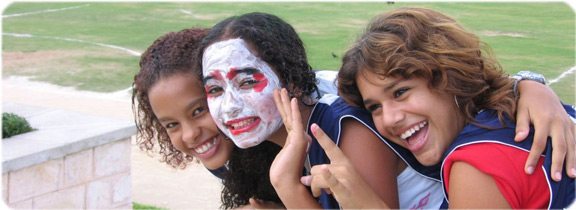
Academy Fellows
With the aim of bringing diverse perspectives and fresh energy to the Aga Khan Academies, a small number of carefully selected recent graduates from well-respected universities are recruited each year to serve as Aga Khan Academy Fellows.
How can I become part of the Academy Fellow's Programme?
To find out more and submit your application, please visit the AKDN Career Centre
Applications are now open for opportunities in Kenya, India and Mozambique for 2021
What is the Fellows Programme at the Aga Khan Academies?
Academy Fellows have the opportunity to work with gifted and talented students from diverse ethnic, religious and socioeconomic backgrounds. Each Academy Fellow will live on campus and serve the student residential programme as a Dorm Parent promoting community life.
Academy Fellows have a demanding and important role in our community and may be responsible for any of the following, depending on the Fellow’s interests and experiences and the Academy’s needs:
- Key role as a Dorm Parent in the residential programme, which includes weekday duties and weekend duties.
- Assistance in a specific curricular area under the mentorship of an experienced master teacher.
- Tutoring individual students or study groups.
- Involvement in the administrative work of departments such as Admissions, Communications or University Counselling.
- Coaching sports and athletic teams, providing music lessons, SAT prep, artistic pursuits.
An integral part of the residential programme at the Academy, the Fellows participate actively in and chaperone off campus field trips, engage in the enrichment programmes (sports, arts, ...) and are closely involved in the student leadership development programme, including activities such as Model MUN, TedX etc.
These opportunities are offered at all our Academy campuses: Mombasa, Kenya, Hyderabad, India and Maputo, Mozambique - Future Academies are planned across Africa, South and Central Asia, and the Middle East.,In which parts of the world can I hope to serve as a Fellow?
Fellows can indicate a preference when applying.
Is this a permanent role or can I come just for a few months or a year?
These will be two-year appointments, overlapping so as to assure continuity. Some Academies will consider one year appointments but prefer a longer commitment.
What are we looking for in our Fellows?
- Genuine interest and commitment to the mission of the Aga Khan Academies and to the development of young people.
- A record of excellent academic achievement at a highly respected college or university.
- A record of significant involvement in residential life, student leadership programming, music, athletic and/or community service during college or university.
The Fellow's programme also provides onsite mentoring and coaching by experienced faculty and staff and an opportunity to experience life in a lively and dynamic school environment.
Some Fellows may come from the AK Academies’ alumni body and others may decide to pursue a career in teaching or education in general.
Do you want to hear more about the programme?
Click here to read what some of our former Fellow have to say about their experience and see them in action.
To find out more and submit your application, please visit the AKDN Career Centre
